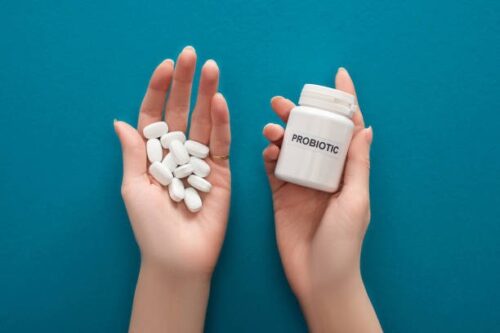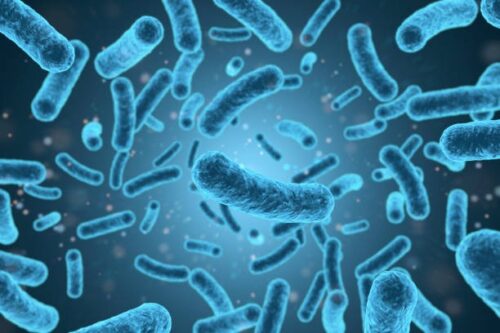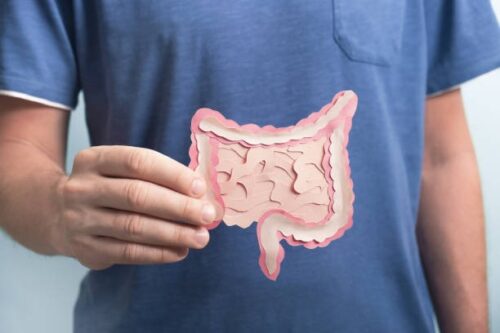A rich army of beneficial microorganisms lives in your stomach, cooperating to keep you healthy. Probiotics are live microorganisms taken as nutritional supplements or fermented foods to help your body’s natural bacteria. Probiotic use is well established to improve overall health and well-being, yet there needs to be more contradictory information regarding its usage.

Source: pixabay.com
Probiotics are a very popular topic in nutrition, and for excellent reasons. Probiotic-containing meals, drinks, and nutritional probiotic supplements can be good for people’s health, particularly in promoting the immune system, physical strength, and gastrointestinal function. However, there needs to be more understanding of what they are and what these probiotics can and cannot do.
What Are Probiotics?
Live bacteria, known as Probiotics, can be good for your health. Trillions of microbes coexist within every human body, supporting our physiological processes and general well-being. Not every microbe we may carry within us benefits us; some bacteria or germs can even be dangerous. However, good bacteria, such as probiotic species, aid in regulating bad ones.
Taking probiotic products provides healthy bacteria to supplement the populations of germs your body already has. Many probiotics are dietary supplements meant to be taken by mouth and entered into your digestive health system. Additionally, there are topical treatment products that you can use on your skin or the mucous membranes found inside body cavities, such as the genitalia or nose. These are all habitats for helpful microorganisms.
Although that bacterium settles everywhere in your body and has potential health benefits, it is mostly found in your stomach. Your gut microbiota, or gut microbiome, which is made up of these bacteria, is vital to your overall well-being. Probiotics are so widely used that supplement producers have made them easily accessible in every form. They are available as powders, tablets, and pills. Probiotics are often included to increase the nutritional content of other supplements, such as green powders.
How Do Probiotics Work?
According to experts from the international scientific association, the various ways by which probiotics function are still being studied by researchers. The Scientific Association for Probiotics Specialists also added that probiotics can support the growth of beneficial bacteria in the microbiome of your stomach or gut, a community of billions of microorganisms that reside in your digestive tract, and support the formation of healthy bacteria, thus improving the health and functionality of your gastrointestinal system. Meanwhile, several Probiotics can create anti-microbial proteins and peptides that aid in the defense against vulnerable gut bacteria and other different strains of health conditions. Although you frequently consume and ingest harmful bacteria, your body has beneficial bacteria that keep you healthy most of the time.
Taking Probiotics regulates the amount of duration it takes food to pass through the gut, a process known as transit time. Metabolites are good byproducts that probiotics release into the body to aid digestion. It sends cues to the body’s tissues to create and accumulate mucus in the gut to function as an immune system shield against infections such as ulcerative colitis and gastrointestinal disorders. They can also aid in the digestion of food that you cannot digest on your own, especially when you lack the enzymes needed to break into smaller pieces and absorb certain fibers.
According to experts, Probiotics can also help generate neurotransmitters or brain chemicals like dopamine or change the amino acid tryptophan found in foods like turkey, milk, and oats into serotonin, which can help elevate mood. Probiotic research suggests that some can also release proteins that reduce inflammation. Experts also point out that probiotics have the ability to produce vitamins B and K.

Source: pixabay.com
Types Of Probiotics
Bifidobacteria
Most animals and people’s intestines contain bifidobacteria found in both surroundings and organisms. They support necessary bodily processes, including digestion and the defense against dangerous microorganisms. They have colonized the gut health microbiome to help improve lactose digestion. It has been connected with gastrointestinal health as well.
In addition to producing essential substances like B vitamins and good fats, bifidobacteria are also known to generate riboflavin, thiamine, vitamin B6, and vitamin K. They also aid in the digestion of fiber, assist in preventing infections and generate crucial chemicals that lessen or avoid antibiotic associated diarrhea and reduce irritable bowel syndrome (IBS) symptoms. These probiotics also improve higher lipid levels and provide some protection from heart disease.
Bifidobacterium can be found in a wide variety of foods, including milk and yogurt. It is highly recommended that you incorporate products high in fiber, such as dates, lentils, blueberries, oaths, avocados, apples, and broccoli, into your daily diet, as they can all support the growth of your Bifidobacterium.
Lactobacilli
One kind of probiotic that is present in the gastrointestinal tract to the human gut, mouth, and vagina, as well as in some foods, is called lactobacillus. It is seen as a beneficial bacteria that aids in food digestion, vitamin absorption, and the defense against harmful organisms that could lead to illness. They have also been linked to a lower incidence of vaginal infections and diarrhea brought on by antibiotics.
Since ancient times, lactic acid-producing Lactobacillus bacteria have been utilized in food manufacturing, especially to cultivate dairy products. The beneficial health advantages of lactobacillus plantarum, lactobacillus casei, and lactobacillus reuteri, have been associated with the formation of lactic acid bacteria and other metabolites. Lactobacilli are significant oral, vaginal, and digestive tract colonizers.
Lactobacillus has a wide range of uses in preserving human health. Probiotics may work best if you take them approximately half an hour before your meal and if you take your dose before the morning meal. But the timing is entirely up to you.
Saccharomyces
Various yeast species belong to the Saccharomyces family. Some varieties can be recognized in plant matter or soil, while others have undergone hybridization for commercial purposes like brewing. The gastrointestinal (GI) system of humans contains them as well. One of the probiotics that has been researched the most is Saccharomyces yeast, mostly for gastrointestinal diseases. It is a resilient organism that can withstand extreme temperatures and the acidic environment or low pH level found in the GI tract.
Due to its anti-pathogenic properties, Saccharomyces has been shown to combat HPylori infections and lower the risk of severe diarrhea in both adults and children. Additionally, it might lessen the symptoms of IBS. In addition, it protects the intestinal lining from pathogenic bacteria or germs and promotes the synthesis of gastrointestinal enzymes, which aid in the breakdown of carbohydrates in food.
Traditional uses for these Probiotics include immunological support, antitumoral, antimalarial, neurologically protective, antioxidant, and antidiabetic. It has been found naturally in a variety of dairy products, such as kefir, yogurt, milk, cream, and cheese. Research indicates that fruit peels from lychee and mangosteen also contain it.
Streptococcus
The gut and its environment benefit from the short chain fatty acids or Streptococcus. This microbe supports intestinal permeability, whether severe or chronic, nutritionally and helps the immune system work normally. Certain Streptococcus species function to increase the pathogenic potential of other immune system pathogens.
Several health advantages have been reported for the probiotic bacteria Streptococcus. Research indicates that it can enhance digestion, lower inflammation, strengthen the body’s immune system, and lower the chance of developing certain medical conditions like eczema, allergies, and irritable bowel syndrome.
Streptococcus is a common ingredient in yogurt, cheese, and other cultured dairy goods. Probiotics’ physiological, sustainable, and metabolic characteristics have been thoroughly documented because of their commercial significance.
Enterococcus
Enterococcus is a useful multitasker in the human gut because it can generate bacteriocins, sometimes known as bacterial bullets or anti-microbial agents. These probiotics can act as a specialist in ammunition, offering a little spark to assist in fending off dangerous pathogenic or germs.
Enterococci are employed as general markers of fecal contamination, but they additionally serve as stand-ins for pathogens and cause health risk factors. Many dangerous human diseases, including meningitis, bacteremia, intra-abdominal infections, wound infections, and UTIs, are frequently brought on by Enterococci. Extended antibiotic regimens are necessary for resistant probiotic strain.
Escherichia
According to a professional from the national institutes of health, one of the many kinds of bacteria that inhabit the digestive tract of healthy people and the majority of warm-blooded animals is Escherichia coli, or simply E. coli. It synthesizes or generates certain vitamins and aids in maintaining the delicate balance of beneficial microbes within the normal intestinal flora. A population of E. coli in your stomach helps digestion and shields the body from other dangerous bacteria.
The primary benefit of using E.coli probiotics is creating genetically identical cells that thrive in various bodily environments. However, some types might get you sick with diarrhea if you consume tainted food or water.
Escherichia coli (E. coli) microbes are often found in the intestines of healthy humans and animals. Most varieties of E. Coli are safe but temporarily cause diarrhea. However, a few types might induce vomiting, bloody diarrhea, and excruciating stomach pains.

Source: pixabay.com
Final Thoughts
Common advantages of these helpful bacteria include strengthening the immune system, preventing dental cavities, and controlling the growths of eczema and vaginal and bacterial infections of the urinary tract. Probiotics have been shown in further research to have a wide range of beneficial benefits, including lowering the length and intensity of respiratory tract infections and improving cholesterol, blood glucose, and body fat measurements.
The most well-known beneficial effects of probiotics on intestinal health include improved digestion, enhanced absorption of some micronutrients, and decreased frequency and severity of diarrhea. It’s still crucial to finish the treatment regimen as directed by your physician.